A New Chapter & A Chance to Make a Change
A Time Before NIE
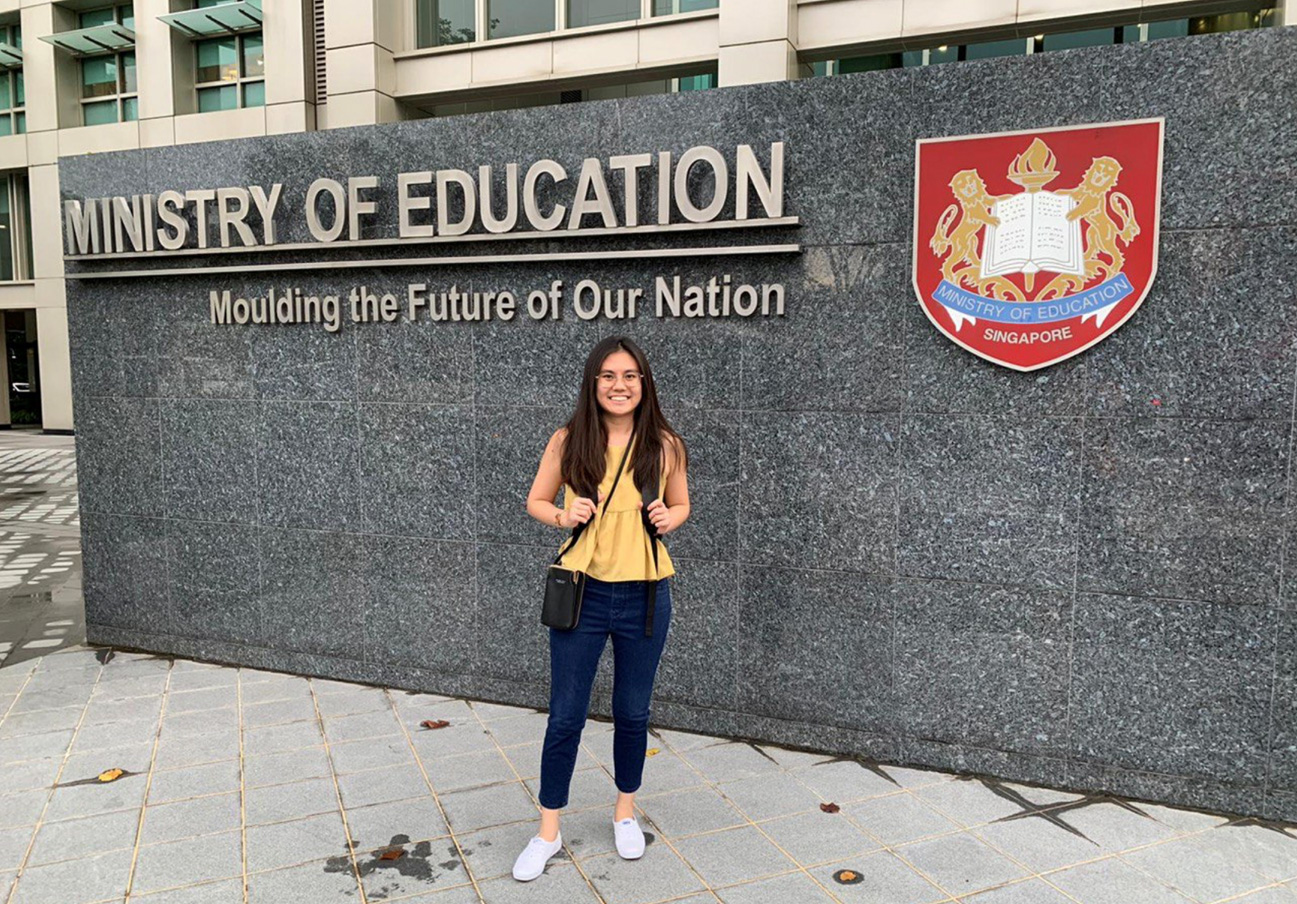
The day I signed my teacher training agreement at the MOE Headquarters.
After graduating with a bachelor’s degree in Accountancy, I joined one of the Big Four accounting firms as an auditor. During my two years at the firm, I learnt many valuable lessons, gained many new experiences and formed many connections. However, deep down I knew that that was not the career path I wanted to be on in the long run. I knew I wanted to do something that was more meaningful to me and I wanted to be able to make a change in the lives of others. I love being around children and I have had teachers who played a pivotal role in my school life. I knew that I wanted to have a chance to be able to touch the lives of young students like they have done with mine, so I decided to take the leap and applied to be a teacher under the Post Graduate Diploma in Education (PGDE) Primary Program at the National Institute of Education (NIE).
After being accepted into the PGDE (Primary) Program in NIE, I spent one year at a primary school in Punggol as a contract teacher in 2021. I was made the form teacher of a Primary 3 class and was assigned to teach my form class both English and Math. I was also assigned to be one of the Co-curricular Activity (CCA) teachers for the school’s choir and helped with other school duties and committee work. During my stint at the primary school, the Covid-19 virus was still at its peak. We had to shift to home-based learning (HBL) and created many Student Learning Space (SLS) packages and other resources to ensure that our students’ learning was not affected. During the HBL period, we had to monitor our students work and reach out to them to check on their well-being. It was a challenging but very enriching and fruitful experience as I had many new learning experiences. I am very thankful to have had the opportunity to experience teaching for a full school year before enrolling into NIE as I had the chance to learn how to manage a class on my own and form close bonds with my students, work with different types of parents, be introduced to different pedagogical methods of teaching and be surrounded by supportive colleagues and mentors who guided me and provided me with advice.
My Identity as a Teacher
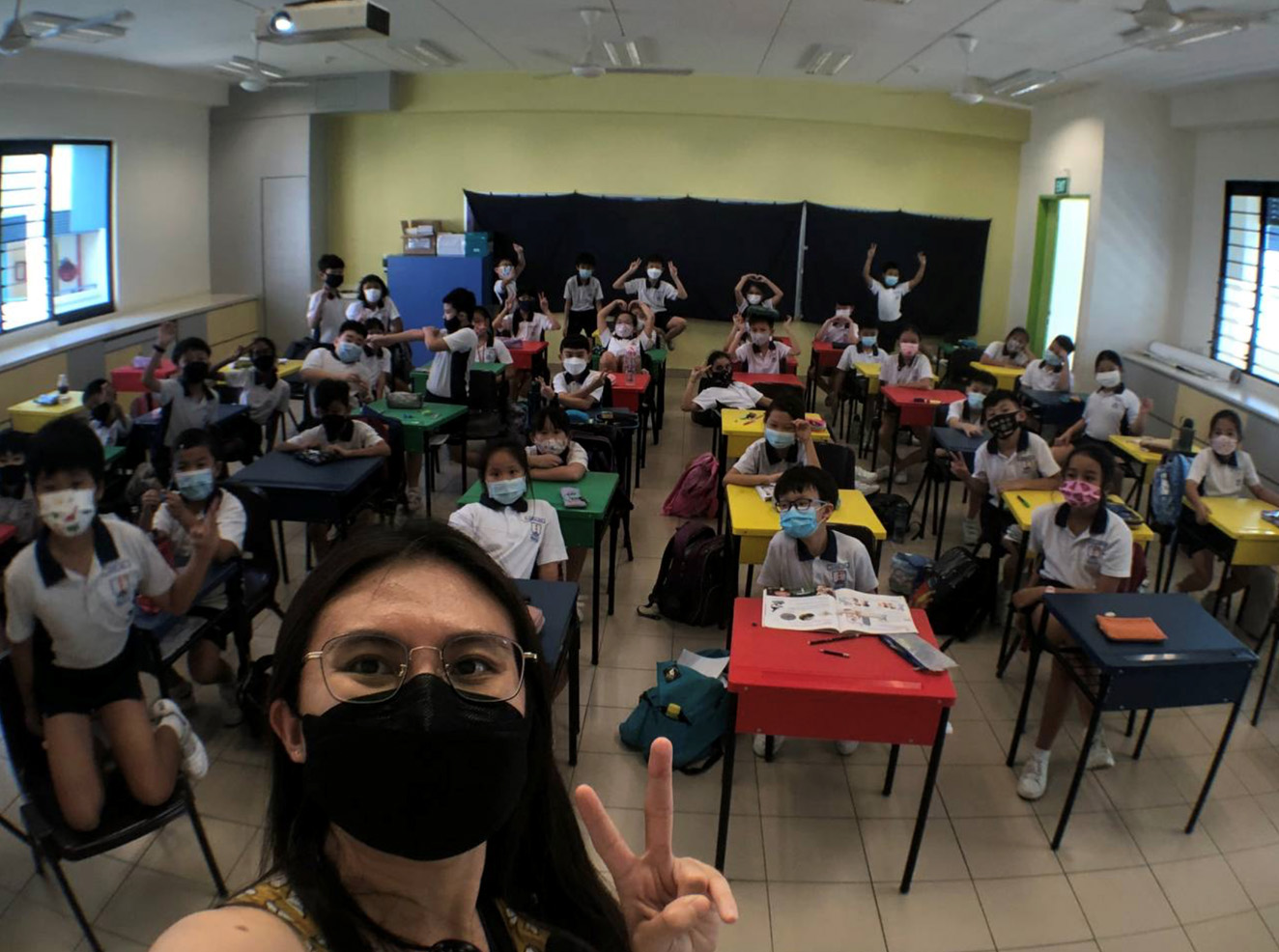
A photo with my Primary 3 form class during my contract teaching stint.
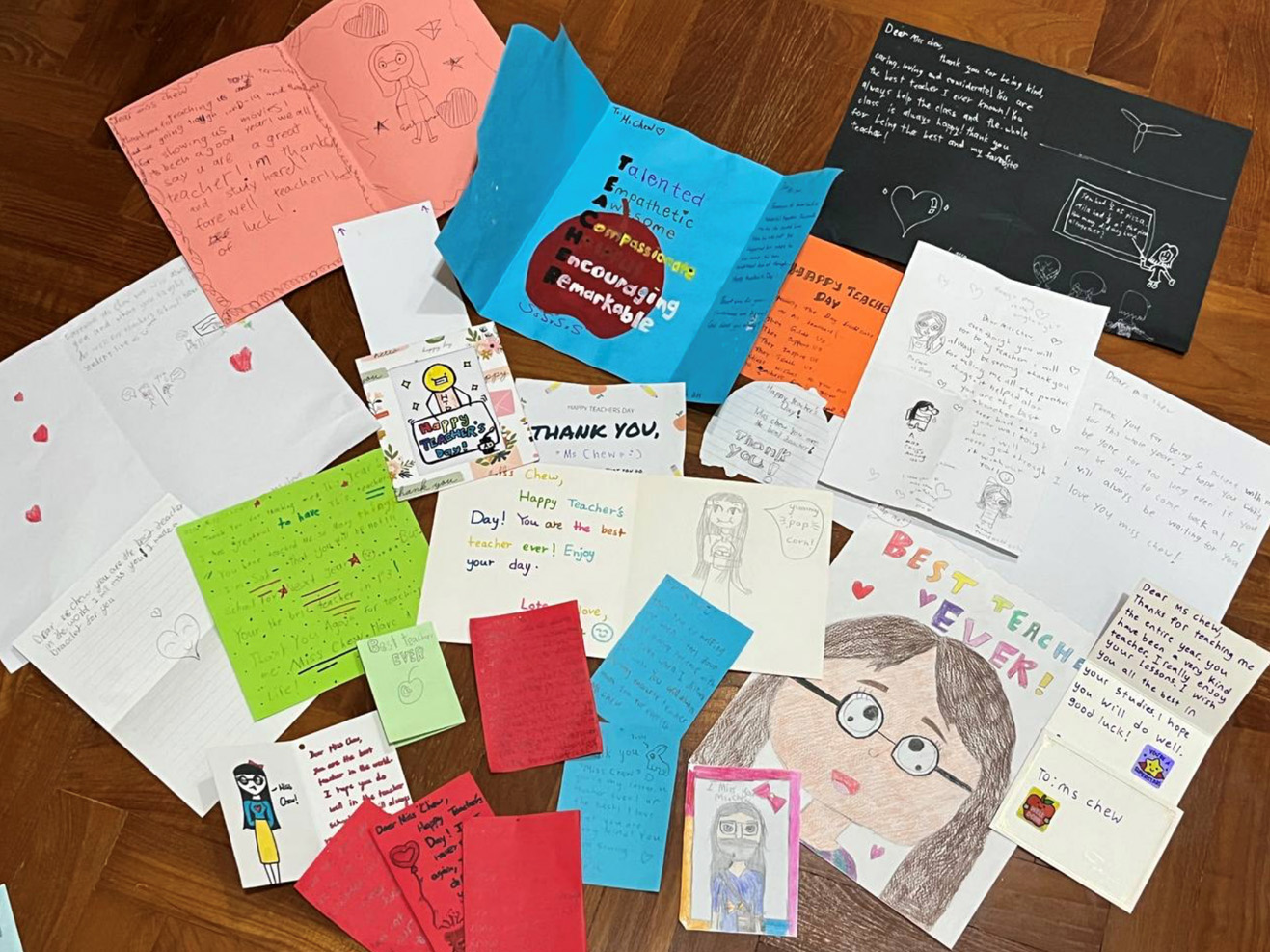
Appreciation notes from students that reminded me of the reasons I chose to teach.
"Your grades do not define who you are". This was said to me by my history teacher in Junior College back when I was a J1 (Junior College Year 1) student. I remember vividly how I studied for long hours, memorised all the facts, practiced writing countless essays but still did not produce a good grade. I was dejected and felt like I wouldn't succeed no matter how hard I tried. When my history teacher said those words to me, it made me realise that I was more than just that letter grade that was given to me at the end of my exam. Doing well academically is definitely important, but at that moment he reminded me that I was not defined by that failure. This motivated me to continue trying and I also realised how impactful our teachers’ words can be. Just like how my teacher has made a positive impact on my life, I chose to be a teacher because I want to make a change in the lives of others too.
I aspire to be a teacher who can create a safe, inclusive and positive classroom environment so that my students will be unafraid to share their thoughts and be themselves. I want to be a teacher who my students can trust, one who believes, supports and encourages her students to reach their full potential.
My Teaching Philosophy
I strongly believe that being a teacher is not merely an occupation; it is also a privilege because as clichéd as it may sound, a teacher has the ability and is in the position to change a child's life even with the smallest action. With the amount of time students spend in school, the school can be deemed to be a child's second home and teachers are hence important role models in a child's life. As such, I understand that my words and actions have the power to impact my students. I aim to use this power to guide my students to be kind and compassionate individuals who take on challenges with a growth mindset. As a teacher, I understand that every child is different. I will strive to help my students reach their fullest potential despite their differences, to never give up on them and to be a teacher they trust. I also believe that even though we are teachers, there are times when we can learn from our students and we should hence be active listeners and have an open mind.
My beliefs about teaching and learning are that students learn most effectively in lessons that they enjoy. In order to create and conduct lessons that meet the needs of the diverse learners, I will need to understand my students and this understanding starts from the very first day of school. I intend to foster a close teacher-student relationship with my students and to create a positive classroom culture so that the students are able to learn effectively. It is indeed important to do well academically but the most important thing I want my students to learn is to have strong moral values. I want them to grow up to be respectful and kind individuals. As I believe that values are more often caught than taught, I will have to lead by example and teach them such values through my actions.
The Process of Inquiry and Reflection
As a form teacher of a primary three class during my contract teaching stint, I had to learn how to understand and manage a class of forty diverse learners. I had one student in my class who was very bright and had a lot of potential to do well academically, but often got into trouble in school. He was often talking to his friends during lessons, walking around class, forgetting to bring or do his homework and at times was involved in disciplinary cases. I wanted to understand the reasons for his behaviour and actions, so my inquiry question was “Why is this student misbehaving and how can I help him improve?”
In order to address the questions I had, I first spoke to his previous form teacher to better understand his behaviour and family background. I also took note of his actions in class. For example, I noted that he often put his head on the table and was unmotivated when it came to solving Mathematics heuristics questions, but was generally more excited to share during English lessons. To understand his perspective, I spoke to him individually to understand his feelings and reasons for his actions. From my data collection, I understood that this student lacked attention at home as his parents were either busy at work or showed more attention to his baby sibling.
With this information, I provided more avenues for this student to be heard and showed him that he is cared for. For instance, when he came to school in the morning, I had check-in sessions with him to understand how he was feeling and to listen to the stories that he had to tell. During recess time, I would sometimes check on my students in the canteen and also used that time to have a chat with him. He showed excitement in helping others, so to help him with his lack of motivation in mathematics class, I allowed him to assist other students who needed help after checking the accuracy of his work. With these changes in teaching practices, he showed an improvement in his behaviour.
The insights I gained from this inquiry process allowed me to make links to the Iceberg Model which I learnt in my Teacher-Student Relationship module in NIE. The Iceberg Model is a systems thinking tool designed to help discover the patterns of behaviour, support structures and mental models that underlie an event. On the tip of the iceberg, I observed that my student was misbehaving and often got into trouble in school. However, there was more than meets the eye. What was unseen were the reasons and causes for his behaviour and my existing assumptions that I held about the student. When I delved deeper and found out more about his home situation, I understood that the reasons for his actions were mostly because he wanted to be seen and heard. As such, my main takeaway from this inquiry and reflection process is that just like the Iceberg Model, there are often underlying reasons for students’ actions that I should seek to understand, so that I can find ways to provide them more emotional and academic support.
Documenting my Growth and Development as a Teacher
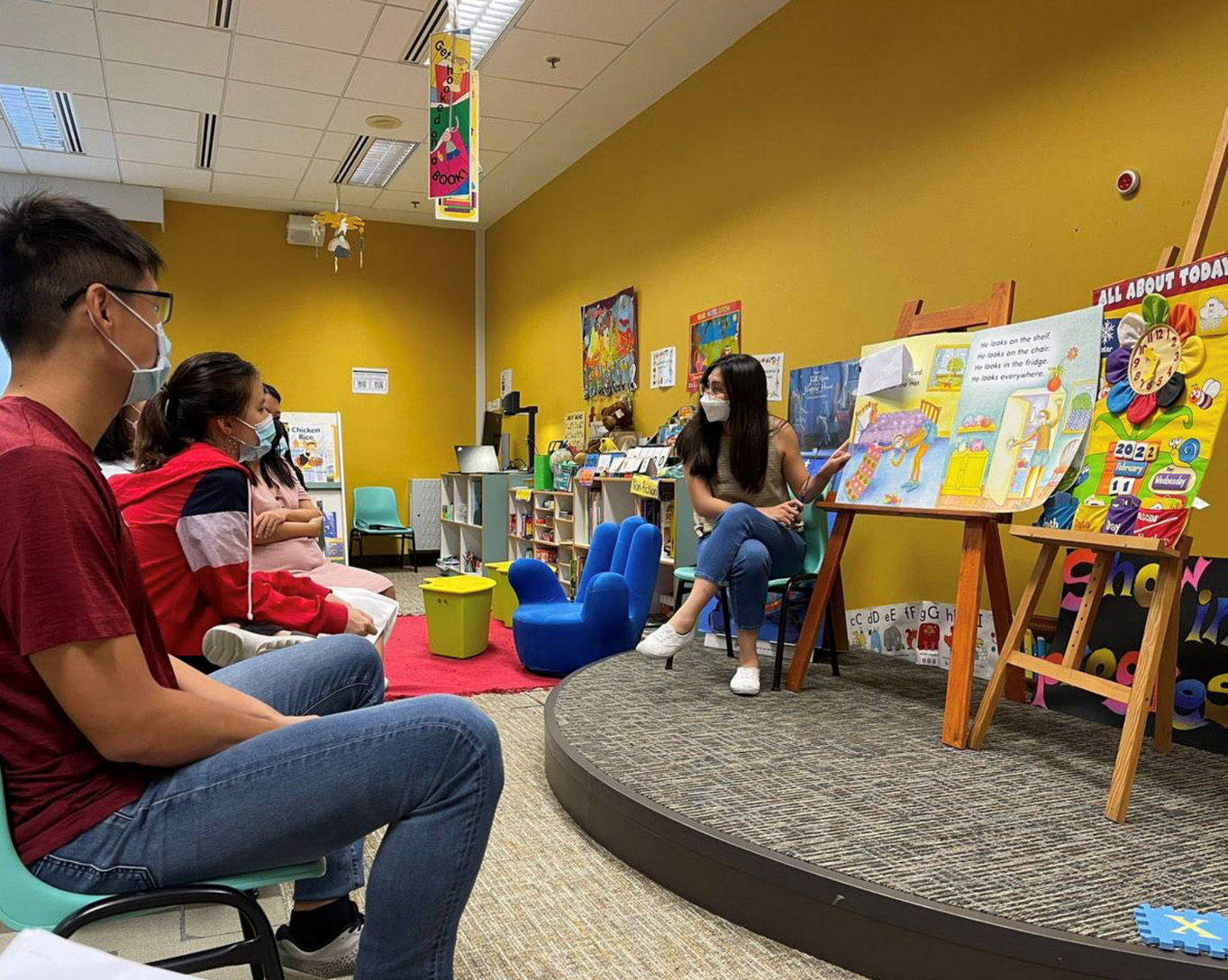
Microteaching English Lesson (Teaching Reading using the Shared Book Approach)
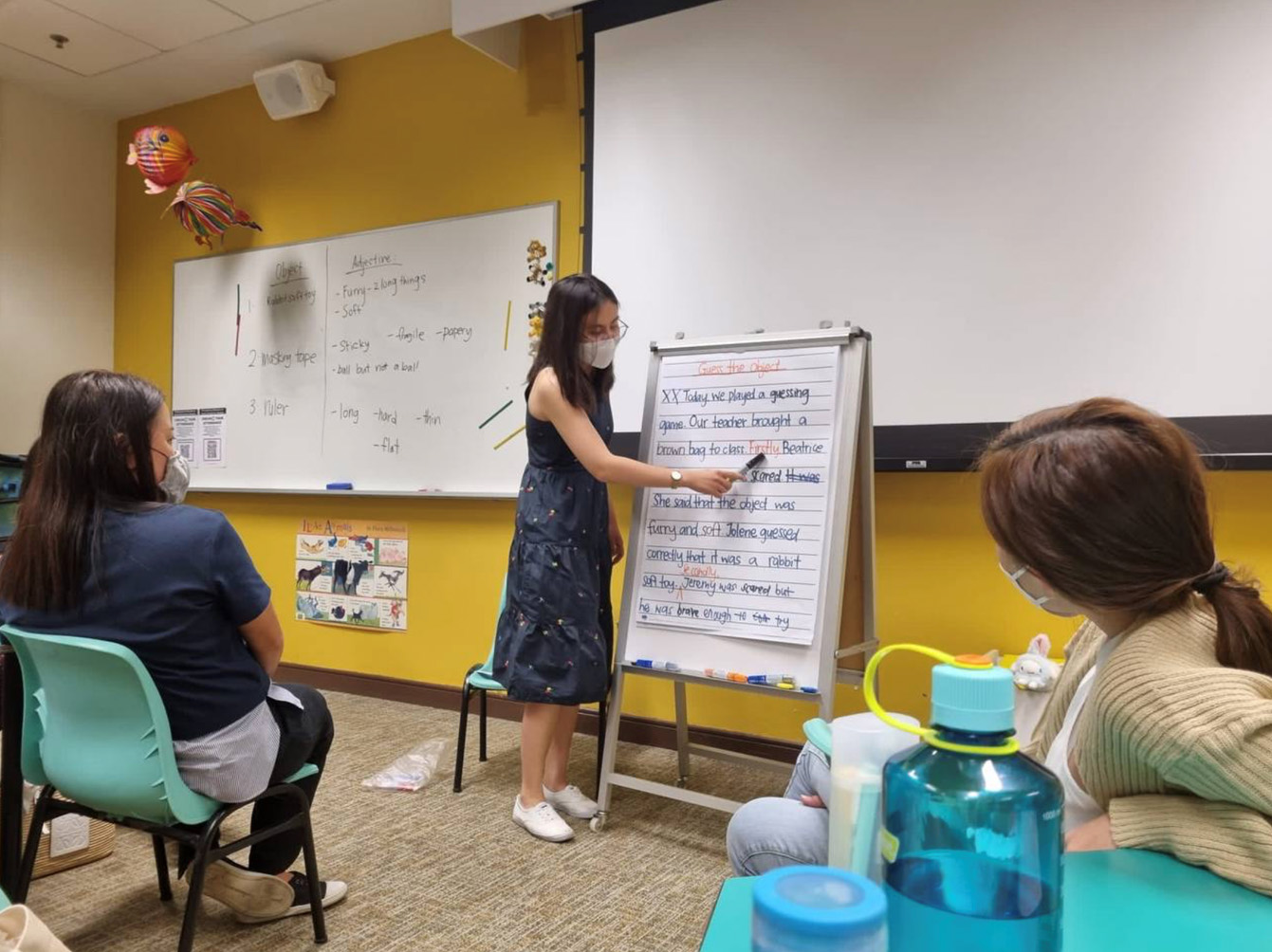
Microteaching English Lesson (Teaching Writing using the MLEA approach)
The academic year in NIE was hectic with many assignments to be completed and tests to be studied for. During the hectic periods when the due dates for our assignments were back-to-back, there was not much opportunity for me to document and reflect on my growth and development as a teacher. The very first time I sat down to properly document and reflect on my growth and development as a teacher was when I created my first post in my Digital Portfolio for my first semester. The Digital Portfolio provided me with a platform and avenue to critically reflect on the lessons I have gone through, assignments I have completed, microteaching lessons I have conducted and other experiences in NIE. For instance, for my microteaching lessons, I was able to reflect and document what went well, and more importantly, what areas of improvement I had and what I could work on to grow to become a better and more effective educator. Through my reflection and documentation, I feel that as compared to the start of my NIE journey, I am now more confident in my teaching as I have learnt many different pedagogical teaching methods that I can include in my future lessons. I also had the opportunity to grow as a teacher through the different microteaching lessons that I conducted and I benefited greatly from the feedback of my tutors and peers. Moving forward, I intend to continue making time to reflect on the lessons I have conducted and to always strive to improve to be a better and more effective educator.
My thoughts on Life-long Learning
Life-long learning refers to the self-motivated act of continuously pursing knowledge and attaining new skills for either professional or personal development throughout one’s life. I feel that it is important for us as teachers to have a growth mindset and to continuously seek ways to improve ourselves. I strongly believe that no matter how old we are, the learning never stops. Even as teachers, there is always new knowledge to obtain and skills to acquire. Only when we have this mindset to learn and improve ourselves can we then inspire our students to find the joy in learning and to make meaning and find purpose from continuous learning. I hope that as a teacher, I will be able to inspire and influence my students to continuously seek ways to improve themselves, to take the initiative to be self-directed learners, and to learn content and pick up skills that are beyond the school’s curriculum.














/enri-thumbnails/careeropportunities1f0caf1c-a12d-479c-be7c-3c04e085c617.tmb-mega-menu.jpg?Culture=en&sfvrsn=d7261e3b_1)

/cradle-thumbnails/research-capabilities1516d0ba63aa44f0b4ee77a8c05263b2.tmb-mega-menu.jpg?Culture=en&sfvrsn=1bc94f8_1)
